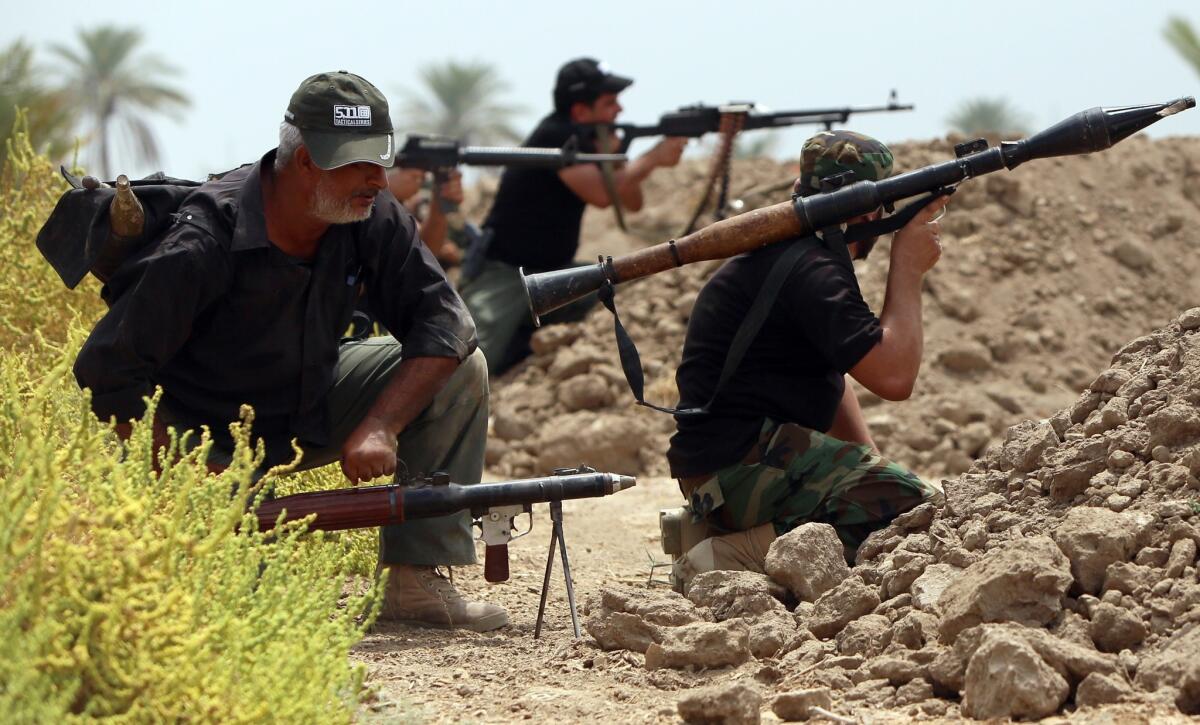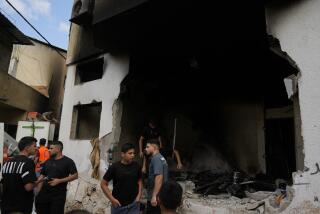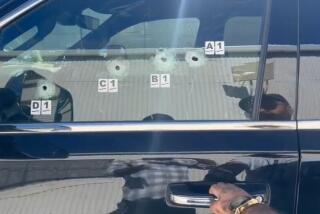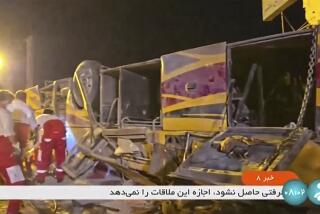Shiite militiamen in Iraq kill scores of Sunni worshipers at mosque

Shiite Muslim militiamen on Friday stormed a Sunni mosque in eastern Iraq and opened fire, killing scores of worshipers, residents and Iraqi officials said, in a sign of growing sectarian violence stemming from the rise of the Islamic State militant group.
The attack in Diyala province, east of Baghdad, was reportedly in retaliation for a bombing earlier in the day that targeted a Shiite security vehicle, raising the specter of the sort of tit-for-tat sectarian killing that marked the deadliest years of the Iraqi civil war years ago.
Witnesses told news agencies that the gunmen were members of a volunteer Shiite militia, one of many that have allied with the Shiite-led government to battle the advance of Islamic State, a Sunni extremist group that has taken control of wide swaths of northern and western Iraq.
Al Qaeda-inspired Islamic State has systematically targeted members of other religious sects, prompting Iraq’s Shiite majority to deploy militias to defend residential areas and holy sites. The militias, many backed by Shiite political figures, have a reputation as fearsome fighters but often lack accountability, many Sunni leaders and Western officials say.
A resident of Diyala reached by phone said 73 people had been killed at the mosque in the village of Bani Wais, about 60 miles east of Baghdad, making it the deadliest attack against Sunni civilians in Iraq in months.
The killings were likely to set back efforts by political leaders — who have been under pressure from the United States and Western allies — to form a multi-sectarian government that can unite the country against religious extremists.
Haider Abadi, a veteran Shiite lawmaker who was nominated as prime minister last week and must name a Cabinet by Sept. 10, called for the killers to be brought to justice and face the harshest of penalties.
“I strongly condemn the killing of civilians and worshipers in Diyala and call on citizens to close ranks against the enemies of Iraq who are trying to stir discord between people of the same country,” Abadi said in a statement.
A leading Sunni politician, Deputy Prime Minister Saleh Mutlaq, said he would suspend participation in talks on government formation in protest of the attack. He said the Shiite militias were “even worse than the terrorists sometimes,” referring to Islamic State, because the militias “are protected by the government.”
“The militias in Diyala are playing a very bad role,” Mutlaq said. “For a long time, we’ve been saying stop the militias’ actions.”
Diyala has been the scene of fierce fighting between pro-government forces and Islamic State militants, who have been battling for control of a series of towns and villages, some near the border with Iran.
On Friday, Iraqi news reports said reported that Kurdish Iraqi forces known as peshmerga had launched an operation to retake the town of Jalawla, which Sunni militants seized this month. The town lies about 20 miles from the Iranian border and near the line that demarcates Iraq’s northern semiautonomous Kurdish region.
The peshmerga have moved to the forefront of the battle against Islamic State, dislodging the militants from the strategic Mosul dam in the north with the aid of U.S. airstrikes this week. Iraqi forces that report to the central government in Baghdad have been far less successful at retaking the vast amount of territory lost to Islamic State in recent months.
U.S. officials have said they would expand coordination with Iraqi government forces only after the formation of an inclusive government that shares more power with minority Sunni Arabs, Kurds and others.
The Obama administration has thrown its support behind Abadi. He was nominated to replace the divisive two-term Prime Minister Nouri Maliki, whose pro-Shiite policies are widely seen as having fueled support among some Sunnis for Islamic State.
“This senseless attack underscores the urgent need for Iraqi leaders from across the political spectrum to take the necessary steps that will help unify the country against all violent extremist groups,” State Department spokeswoman Marie Harf said.
More to Read
Sign up for Essential California
The most important California stories and recommendations in your inbox every morning.
You may occasionally receive promotional content from the Los Angeles Times.











